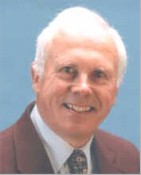 Paradigm
Shift
Paradigm
ShiftInternational
USA-505-586-1536
OtherWise
 Paradigm
Shift Paradigm
ShiftInternational USA-505-586-1536 |
OtherWise |
| A new guest
appears monthly, and the prior wisdom is archived in the Library. Register for free email notice when monthly update occurs. |
|
| Featured Guest Speaker David J. Skyrme, Managing Director Posted: January 8, 1998 Knowledge
Communities - Helping Them Thrive |
 |
----------------------------------------------------------------- The notion of a 'Community of Knowledge Practice' has been evolving for some time. The term 'Community of Practice', emanated out of the work at Xerox Parc at the turn of the decade, and has been increasingly applied in the knowledge management context. For example, Shell uses the term KMunity (now trade marked I believe) to describe their communities of practice. Essentially a Community of Practice is a group of people who are "peers in the execution of real work" (John Seely Brown, Xerox). They are not a formal team but an informal network, each sharing in part a common agenda and shared interests. In the Xerox example they found that a lot of knowledge sharing among copier engineers took place through informal exchanges, often around the water cooler. They used a social science technique called ethnography, which we have found to be growing in use as researchers and managers strive to understand the nature of knowledge work in different office settings. Debra Amidon, a long term strategist in the field of knowledge, recognized how such a community was evolving around the knowledge movement. She described it as a Community of Knowledge Practice (see "The Emerging Community of Knowledge Practice", Knowledge Inc., March 1997 [1]). This community is drawing together people from all geographies, all industries, all functions. The harnessing of knowledge and its use as a factor in business success is too important to be left to any one function, such as MIS (management information systems). According to Amidon, each part of business has their part to play, for example:
These are just some examples of how different specialisations and skills converge and collaborate around the knowledge agenda. In analysing developments over the last year, we have seen a kind of 'roll out' of the knowledge focus around geographies, industries and functions. While we should beware of oversimplification, it has happened something like this
This overall community will grow in 1998 and evolve - perhaps to something not called knowledge management by the year 2000. However, we must not lose sight that much of the real ground work is taking place in smaller, interconnected communities. They may be people who share an interest in new materials for packaging or a new technique for deep water seismology. These communities, call them networks if you like, are already, and have for many years, been active within and across organizations, e.g., via professional societies, special interest groups etc.). The challenge for organizations is to support such communities and make them effective. One potential danger of the focus on knowledge MANAGEMENT is that a degree of systematization and formality will stifle such communities. How can knowledge managers minimize this risk?
Above all, give them "space" (physically and metaphorically) to develop and grow. In summary, this represents the style of management needed in a knowledge-enriching organizations. Such communities are self organizing, and the role of management, where it exists, is to provide the appropriate environment and tools for these communities to flourish - by providing the context, and using the techniques of facilitation, mentoring and coaching. You may also find some useful ideas in our "Principles of Virtual Organisations and Teaming" (see I3 UPDATE No. 11 at http://www.skyrme.com/updates/u11.htm) In the wider context, two kinds of community are very apparent:
The Internet is enriching the former - not just through the Web but through news groups and mail lists (particularly moderated ones to eliminate 'spamming'), not forgetting plain old email (still the workhorse and highest value use of the Internet). Genealogy provides an illustration of how they might evolve. As a subject it is being transformed through the readiness in which different branches of families can compare their histories and make connections between previously disparate branches. Webs of 'family knowledge' are being created, with rich interconnections. Skyrm(e)s (a fairly rare name) are popping up all over the world, and finding their common ancestors (mostly in Pembroke, South Wales and Herefordshire). Surprisingly, the Internet, while offering global reach to local businesses (such as David Skyrme Associates) is also helping local communities find more sense of community and a sense of identity in the wider world. For instance, people in organizations just down the corridor email each other, and now, too, this is happening in local communities - with the advantage that more than two people can share in the exchange and increase collaboration. Most readers of this I3 UPDATE are participants in the Community of Knowledge Practice (as well as other communities of interest). We encourage you to reflect on how it is evolving, how well it is working and how your other communities of interest intersect with it. As always we welcome your insightful comments and feedback to david@skyrme.com . [1] Abstract at http://www.entovation.com/info/article1.htm Knowledge Inc: http://www.knowledgeinc.com >>>>>>>>>>>>>>>>>>>>>>>>>>>>>>>>>>>>>>>>>>>>>>>>>>>> David J. Skyrme Tel/Fax: +44 1635
551434 >>>>>>>>>>>>>>>>>>>>>>>>>>>>>>>>>>>>>>>>>>>>>>>>>>>> |
| Would you like to offer some thoughts or add to the dialog? Responses of general interest may be posted below.
Send your comment to |
|
========= Reply =========================
|
|
Send mail to |